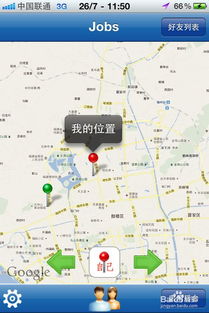输入手机号免费查位置
Title: Understanding Mobile Phone Location Tracking Technology
Mobile phone location tracking has become a significant aspect of modern technology, with various applications ranging from enhancing user experience to aiding in emergency situations. Let's delve into how mobile phone location tracking works, its applications, privacy concerns, and potential considerations for users.
How Mobile Phone Location Tracking Works:
1.
GPS Technology
: Most modern smartphones are equipped with GPS (Global Positioning System) receivers. These receivers communicate with satellites to determine the device's location accurately.2.
Cellular Network Triangulation
: Even when GPS is unavailable, mobile phones can still be tracked through cellular network triangulation. This method involves calculating the phone's location based on its proximity to nearby cell towers.3.
WiFi Positioning
: WiFi networks can also be utilized for location tracking. By scanning for nearby WiFi access points and comparing their signal strengths, a device can estimate its location with reasonable accuracy.Applications of Mobile Phone Location Tracking:
1.
Navigation Services
: GPS tracking powers navigation apps like Google Maps and Apple Maps, providing users with realtime directions and traffic updates.2.
Emergency Services
: Location tracking is crucial for emergency services to quickly locate individuals in distress, such as during 911 calls.3.
GeoTargeted Advertising
: Advertisers use location data to deliver targeted ads based on users' whereabouts, improving ad relevance and effectiveness.4.
Fleet Management
: Businesses use location tracking to monitor the movements of vehicles in their fleet, optimizing routes and improving efficiency.5.
Parental Control Apps
: Parents can use location tracking to ensure their children's safety by monitoring their whereabouts.Privacy Concerns:
1.
Data Security
: Storing and transmitting location data can pose security risks if proper encryption and protection measures are not in place, potentially exposing users to identity theft or stalking.2.
Surveillance and Tracking
: Excessive tracking of individuals' movements raises concerns about privacy infringement and surveillance, especially when done without explicit consent.3.
Data Misuse
: Location data collected by service providers or app developers may be sold to third parties or used for purposes other than what was originally intended, leading to privacy violations.4.
Legal and Ethical Implications
: There are legal and ethical debates surrounding the collection and use of location data, with questions about consent, transparency, and user control.Considerations for Users:
1.
Review App Permissions
: Regularly review and manage the permissions granted to apps on your device, especially those related to location tracking, and disable unnecessary access.2.
OptOut Options
: Utilize optout options provided by service providers or app developers to limit the collection and use of your location data.
3.
Enable Location Services Wisely
: Consider enabling location services only when necessary, and be mindful of which apps have access to your location at any given time.4.
Stay Informed
: Stay informed about privacy policies and terms of service of apps and services you use, and be wary of any changes that may impact your privacy.In conclusion, while mobile phone location tracking offers numerous benefits, it also raises significant privacy concerns. Users should remain vigilant about how their location data is being collected, used, and protected, and take proactive steps to safeguard their privacy in an increasingly interconnected world.
免责声明:本网站部分内容由用户自行上传,若侵犯了您的权益,请联系我们处理,谢谢!联系QQ:2760375052










